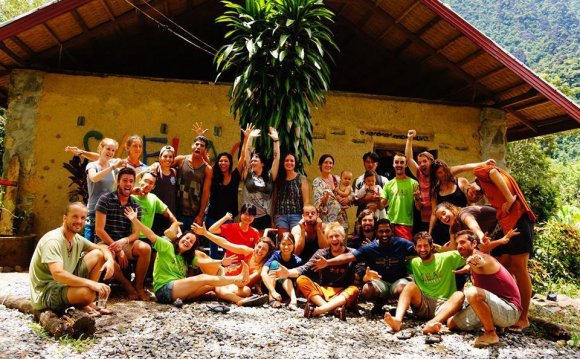
Ayurveda is an ancient lifestyle practice which aims to create harmony within the body. Practised widely in India, it is often suggested that Ayurveda originated more than 400 years ago, making it one of the oldest systems of wellbeing to man. It is based on the philosophy of health and lifestyle that treats the whole person and not just the symptoms,
What does Ayurveda mean?
Taken from the Sanskrit (the ancient language of india), ayurveda translates as 'knowledge of life' and can be interepreted as priceless wisdom
Ayurveda a holistic approach to a complete Way of Life
Ayurveda is a complete way of life. As a holistic health system comprising diet, Yoga, massage, detoxification, herbal remedies, meditation and daily lifestyle, Ayurveda improves not only a person's health, but also their well being, behaviour and state of mind.
Ayurveda is prevention-oriented, is free from harmful side-effects and treats the root cause of a disease rather than just the symptoms. Ayurveda views illness as caused by an imbalance in a person's physical or mental constitution and therefore seeks to gently bring a person's body and mind back into a healthy balance.
Although Ayurveda can be used to alleviate various conditions, it is founded on the principle of preventing disorders in the long term rather than waiting for problems to manifest themselves. Thus it is the ideal way for healthy individuals to maintain good health and general well being.
With a few small changes to a person's daily life, it is possible to live the Ayurvedic way and reap the benefits. Ayurveda is certainly not intended to replace modern medicine, but rather to give people the tools to treat their body according to its needs, leading to emotional and mental well being and good health.
Principles of Ayurveda
Ayurveda sees everything in the universe, including human beings, as composed of five basic elements (or Panchamahabhutas): space, air, fire, water and earth.
These five elements in turn combine with each other to give rise to three bio-physical forces (or Doshas) within the human body- Vata (air and space), Pitta (fire and water) and Kapha (water and earth). Together they are known as Tridosha and govern all the biological, physiological and psychological functions of the mind and body, both, physical and emotional, as well as effecting how an individual interacts with everything around them.
Every individual has within them all three bio-physical forces, but it is the dominance of any one or two or all three that makes up a person's individual constitution or Prakriti.
Although a person's Dosha type is determined at the moment of conception, Doshas are constantly shifting within the body. Just as the five basic elements fluctuate within the nature, these elements will also fluctuate within the body. Therefore the Dosha dominance changes with age, time of day or night and the season etc.
A person's dosha determines the kind of lifestyle that is balancing and healthy for them, including the sorts of food they should eat and the amount and type of exercise they should do. Ayurveda covers a variety of techniques, from detoxification, diet and herbal prescriptions, to yoga, meditation and massage therapy. All are personalised to suit the individual's dosha.
Ayurveda seeks to treat the mind and body according to a person's Dosha using a system combining diet, herbal remedies, detoxification, Yoga, Ayurvedic massage, lifestyle routine and behaviours which stimulate positive emotions.
Massage treats the whole body through touch: physically, mentally and emotionally. In ayurveda oleation, or oiling of the body is very important. An ayurvedic text describes the benefits of ayurveduc oil massage as follows:
' Oil massage should be resorted to daily. It wards of old age, exertion and old age and aggravation of vat. It bestows good vision, nourishment to the body, long life, good sleep, good and strong healthy skin. It should be done specifically to the feet, head, ears and palms'
Astanga Hrdayam, vols: 1-111; prof K.R.Srikantha
Ayurvedic massage uses essential oils that are chosen to suit your dosha. The massage techniques used include tapping, kneading and squeezing as well as the more traditional massage strokes you would expect. The style and flow of the massage is determined by who you are, and what your body needs for balance and wellbeing at the time.
When combined with other Ayurvedic principles (eating a range of food prescribed by one's dosha, for example, or exercising at certain times of the day), the massage is designed to:
- detoxify and cleanse
- boost the effectiveness of the immune system
- keep healthy people in good health
- help those with medical conditions to improve their overall well-being
- help with stress relief
- improve circulation
- Increase body awareness
- Increase vitality, rejuvenating, repairing
- promote healthy skin
- строительный вестник https://kinokrolik.ru/
RELATED VIDEO












